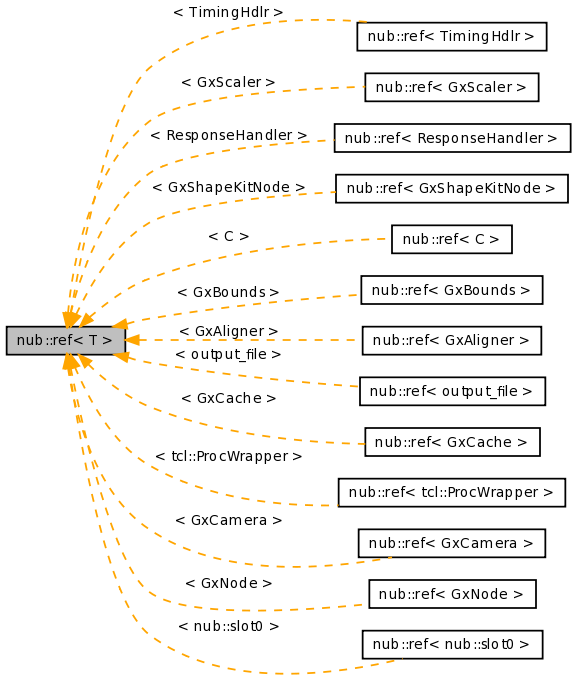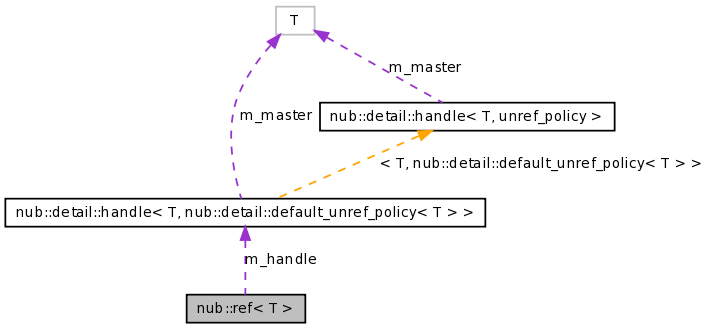nub::ref< T > Class Template Reference
#include <nub/ref.h>
Inheritance diagram for nub::ref< T >:

Collaboration diagram for nub::ref< T >:

Public Member Functions | |
| ref (nub::uid i) | |
| ref (T *ptr, ref_vis vis=DEFAULT) | |
| template<class U> | |
| ref (const ref< U > &other) | |
| template<class U> | |
| ref (const soft_ref< U > &other) | |
| void | reset (T *p) |
| Shorthand for assignment. | |
| T * | operator-> () const throw () |
| T & | operator* () const throw () |
| T * | get () const throw () |
| bool | operator== (const ref &other) const throw () |
| bool | operator!= (const ref &other) const throw () |
| nub::uid | id () const throw () |
| bool | operator< (const ref &other) const throw () |
| Comparison operator for sorting. | |
Detailed Description
template<class T>
class nub::ref< T >
nub::ref<T> is a ref-counted smart pointer for holding ref_counted objects. A nub::ref<T> is guaranteed to always point to a valid ref_counted object, and uses ref_counted's strong ref counts to achieve this. In order to provide this guarantee, it is possible that construction of a nub::ref<T> may throw an exception. For example, a nub::ref<T> cannot be constructed for a volatlie ref_counted object for which only weak references are available.
Definition at line 134 of file ref.h.
Member Function Documentation
template<class T>
| void nub::ref< T >::reset | ( | T * | p | ) | [inline] |
The documentation for this class was generated from the following file:
- src/nub/ref.h